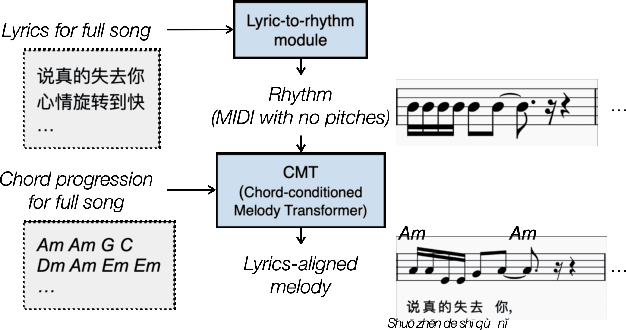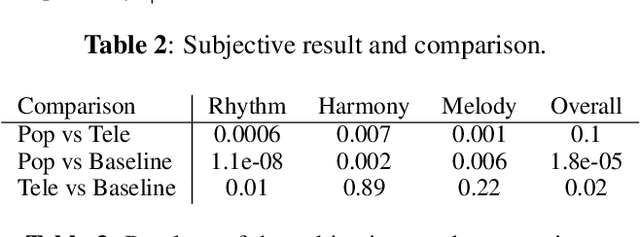Katerina Kosta
StemGen: A music generation model that listens
Dec 14, 2023

Abstract:End-to-end generation of musical audio using deep learning techniques has seen an explosion of activity recently. However, most models concentrate on generating fully mixed music in response to abstract conditioning information. In this work, we present an alternative paradigm for producing music generation models that can listen and respond to musical context. We describe how such a model can be constructed using a non-autoregressive, transformer-based model architecture and present a number of novel architectural and sampling improvements. We train the described architecture on both an open-source and a proprietary dataset. We evaluate the produced models using standard quality metrics and a new approach based on music information retrieval descriptors. The resulting model reaches the audio quality of state-of-the-art text-conditioned models, as well as exhibiting strong musical coherence with its context.
Modeling the Rhythm from Lyrics for Melody Generation of Pop Song
Jan 03, 2023



Abstract:Creating a pop song melody according to pre-written lyrics is a typical practice for composers. A computational model of how lyrics are set as melodies is important for automatic composition systems, but an end-to-end lyric-to-melody model would require enormous amounts of paired training data. To mitigate the data constraints, we adopt a two-stage approach, dividing the task into lyric-to-rhythm and rhythm-to-melody modules. However, the lyric-to-rhythm task is still challenging due to its multimodality. In this paper, we propose a novel lyric-to-rhythm framework that includes part-of-speech tags to achieve better text setting, and a Transformer architecture designed to model long-term syllable-to-note associations. For the rhythm-to-melody task, we adapt a proven chord-conditioned melody Transformer, which has achieved state-of-the-art results. Experiments for Chinese lyric-to-melody generation show that the proposed framework is able to model key characteristics of rhythm and pitch distributions in the dataset, and in a subjective evaluation, the melodies generated by our system were rated as similar to or better than those of a state-of-the-art alternative.
 Add to Chrome
Add to Chrome Add to Firefox
Add to Firefox Add to Edge
Add to Edge